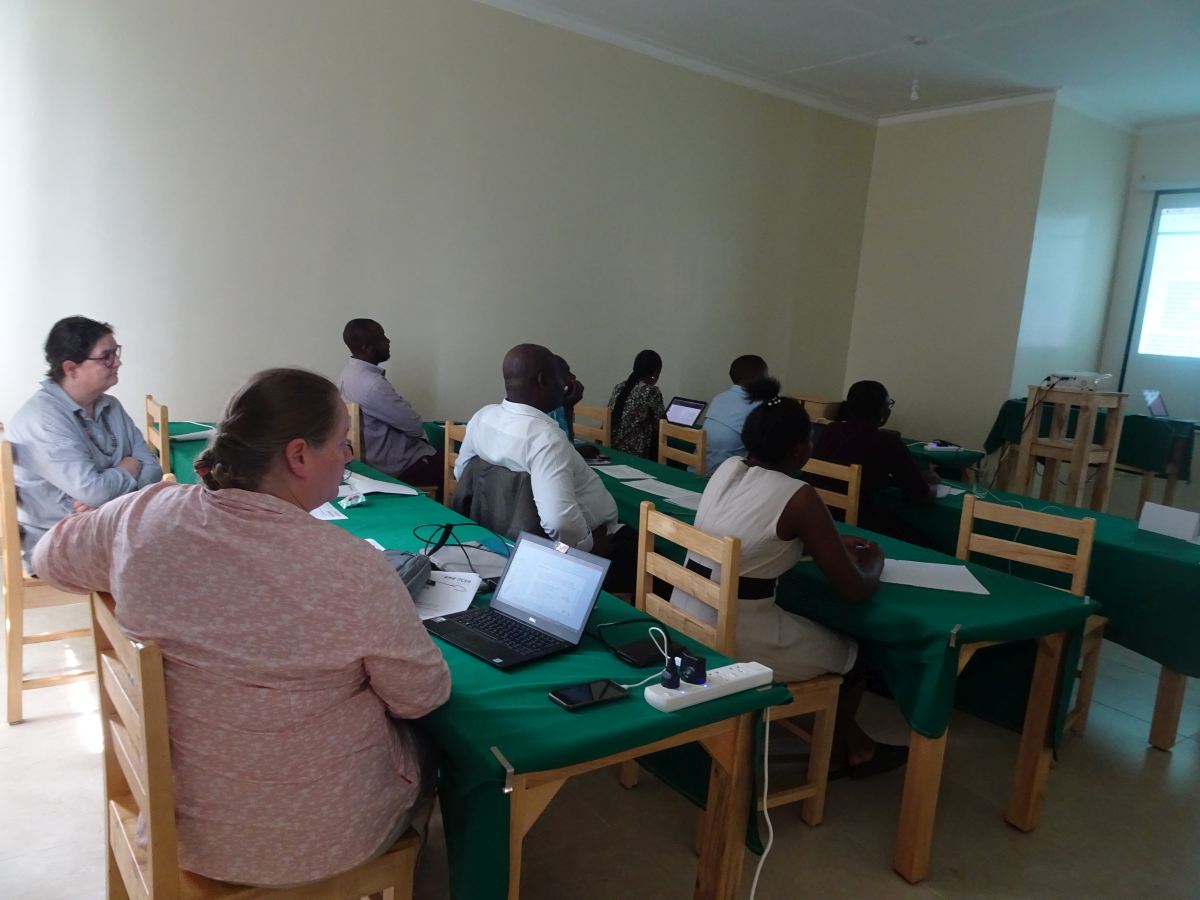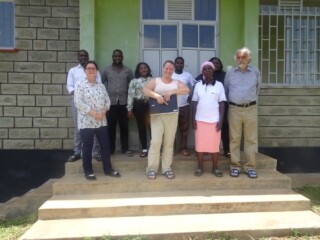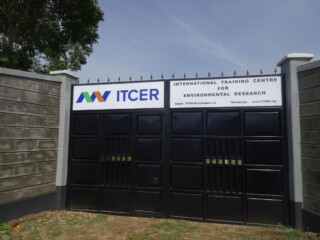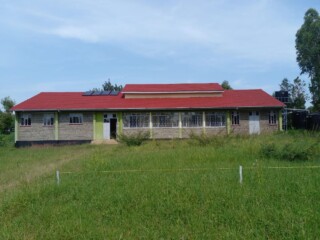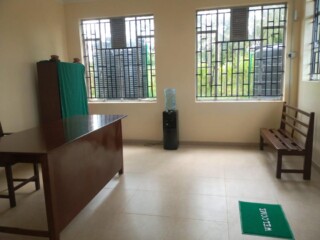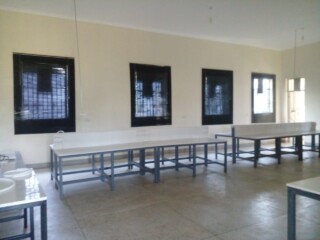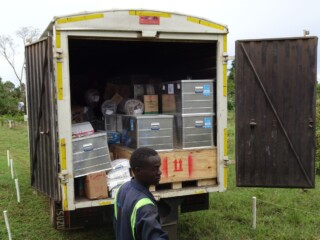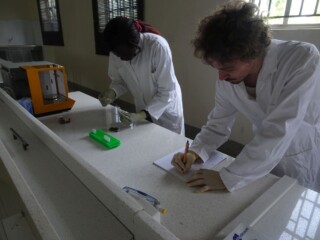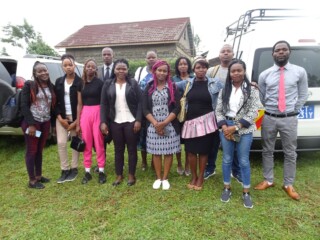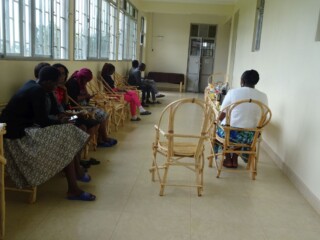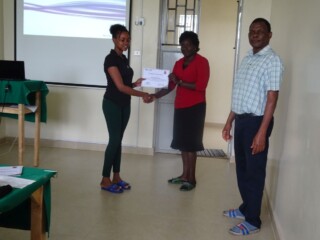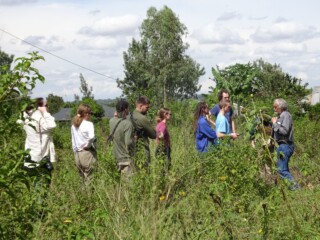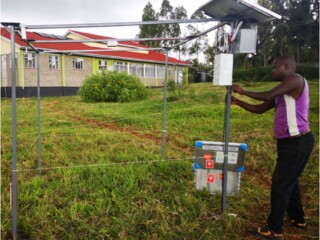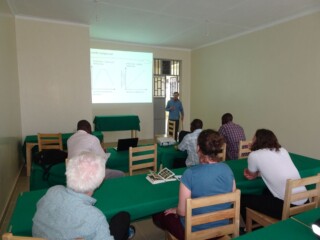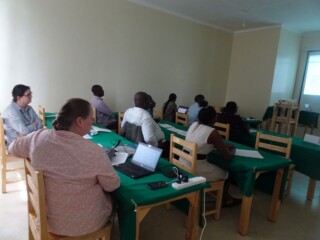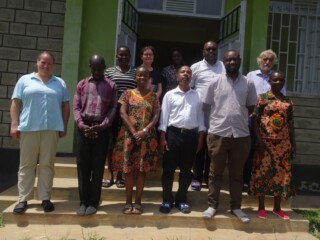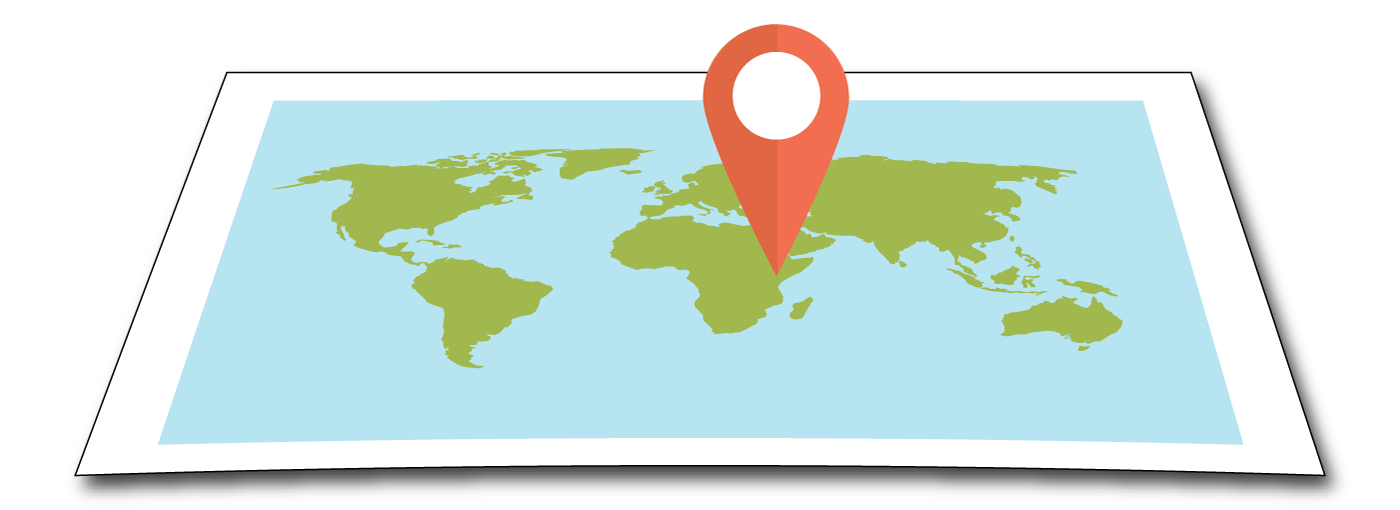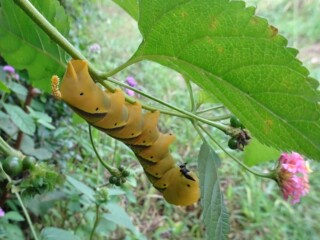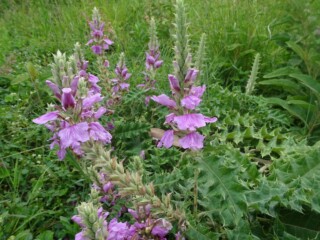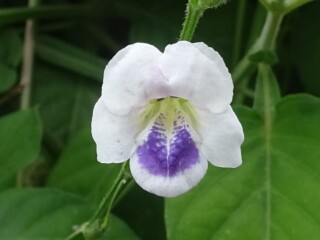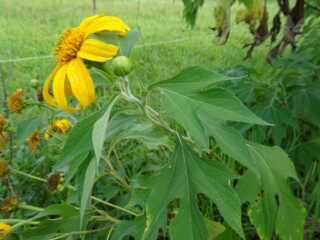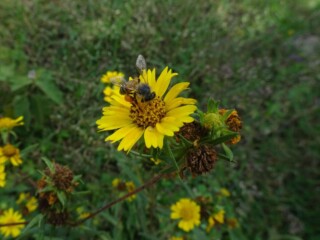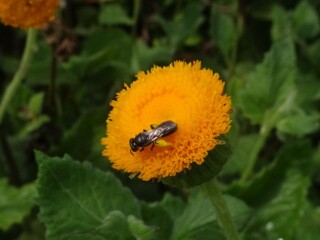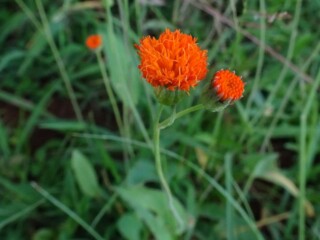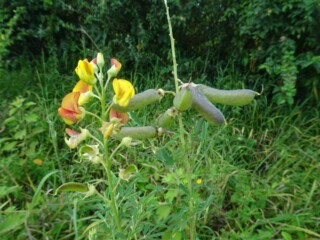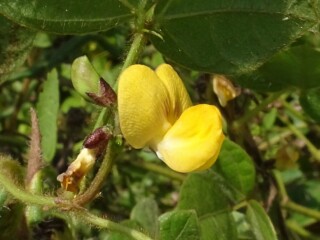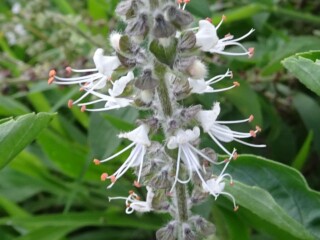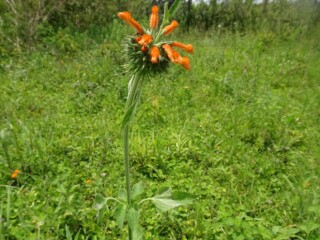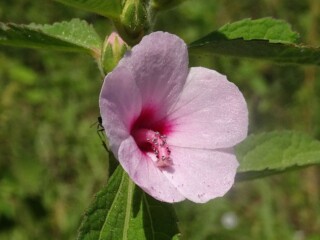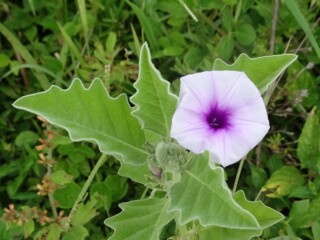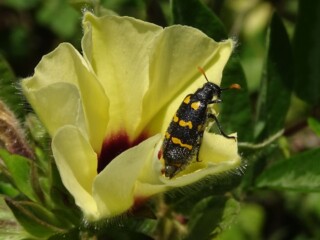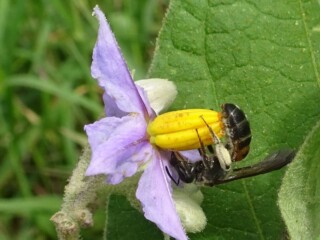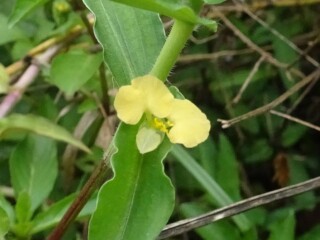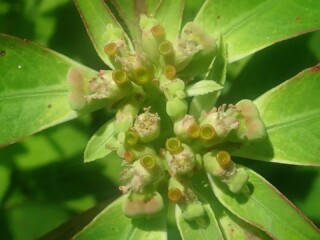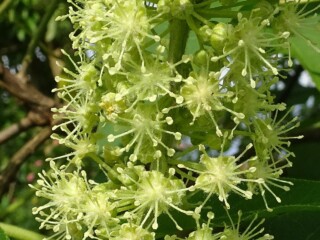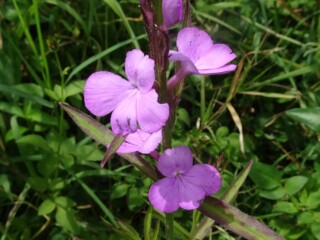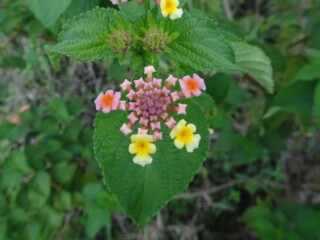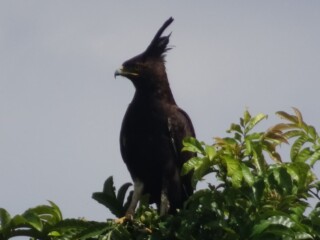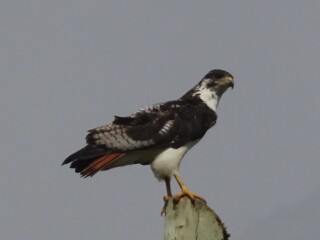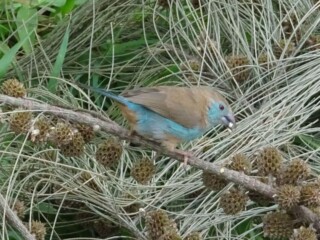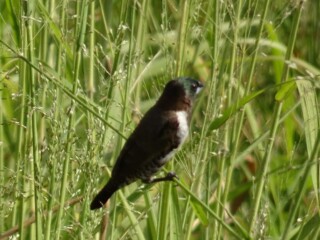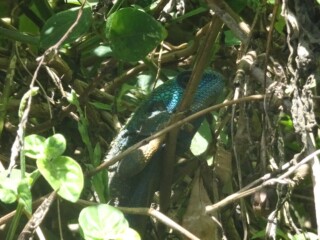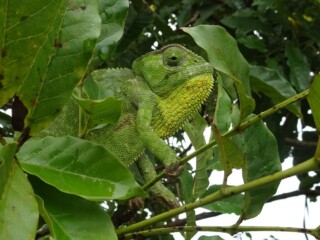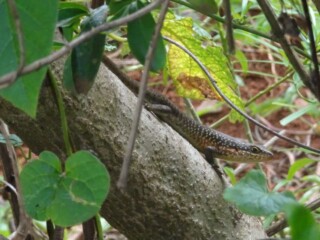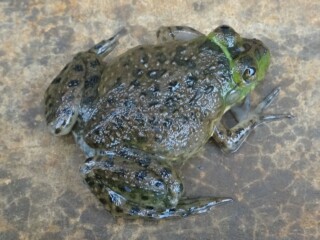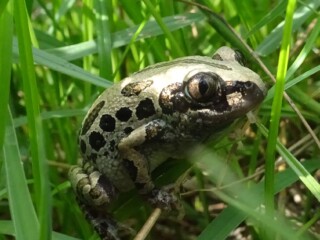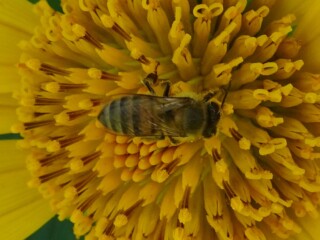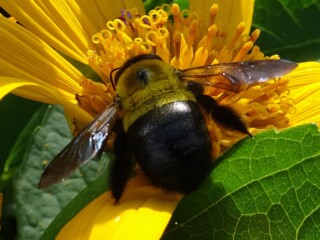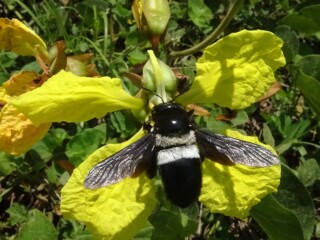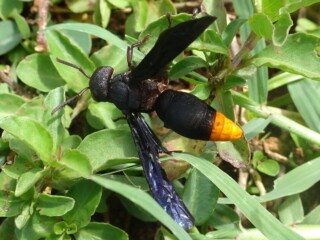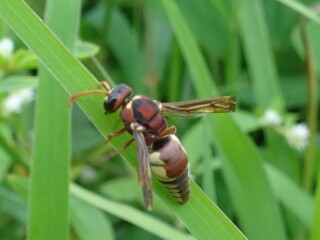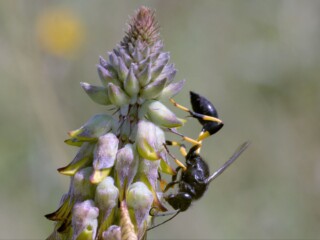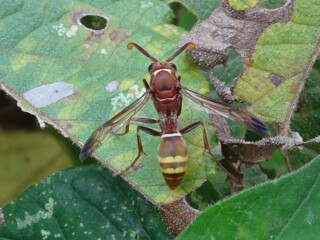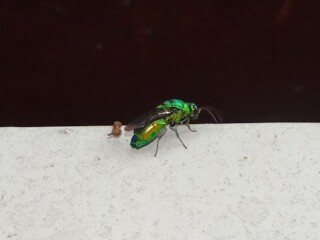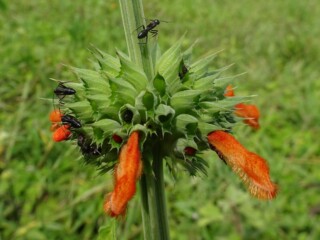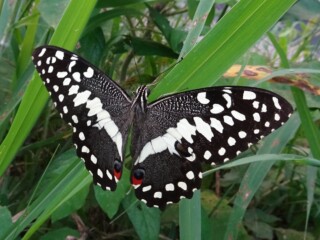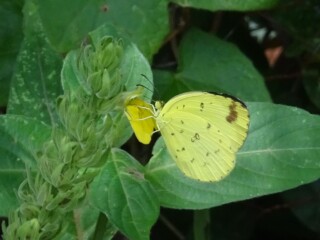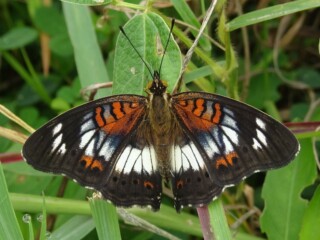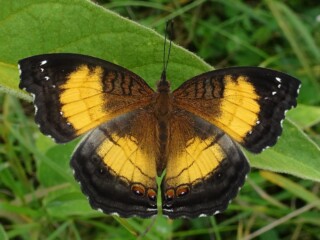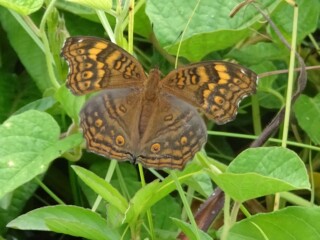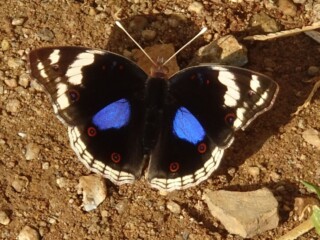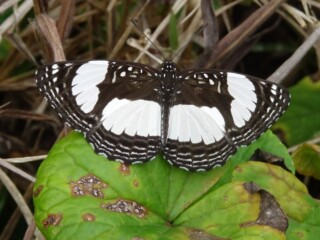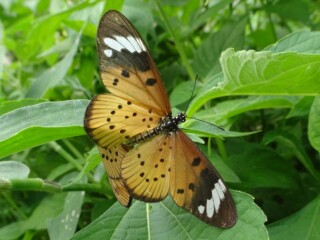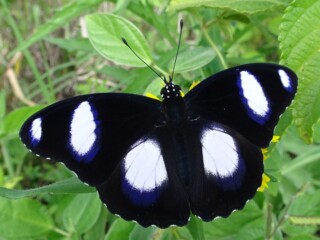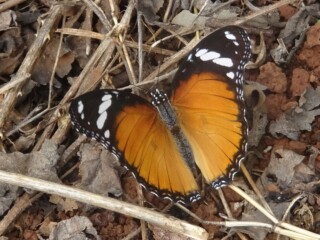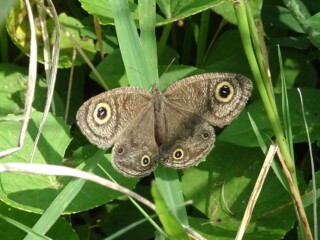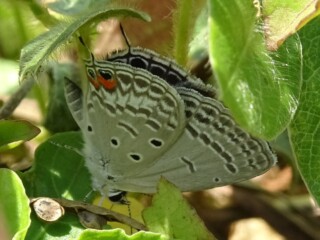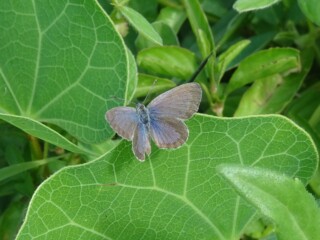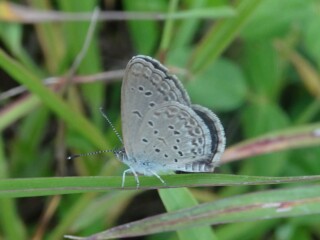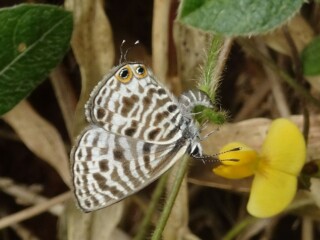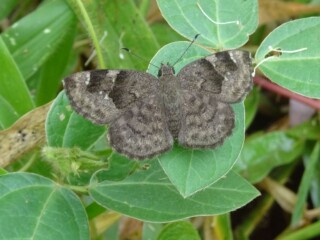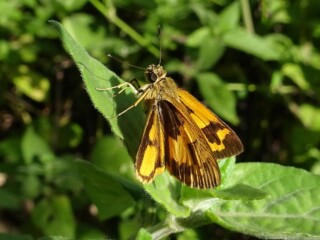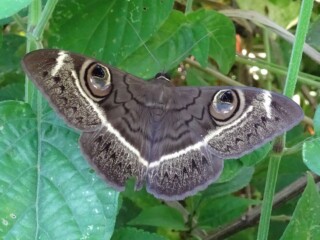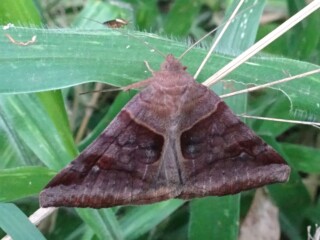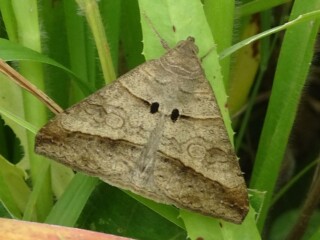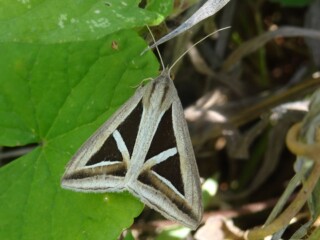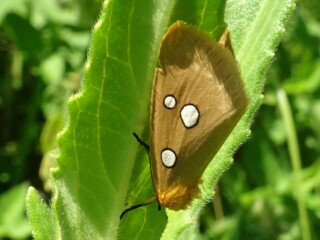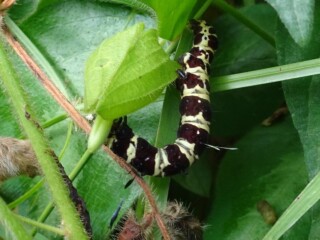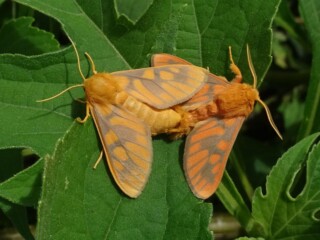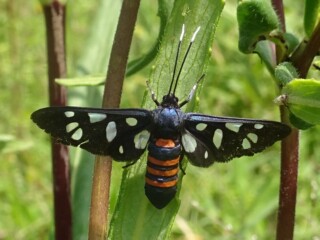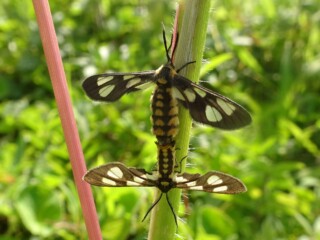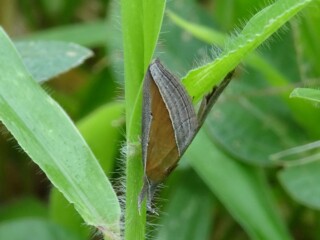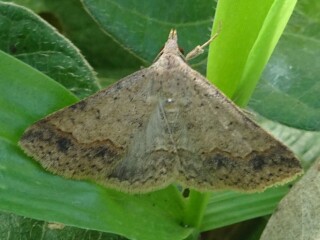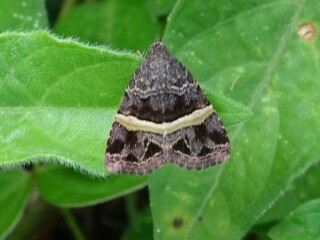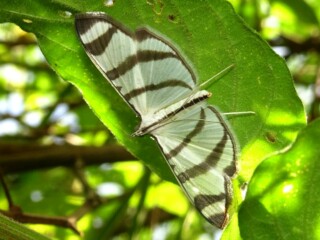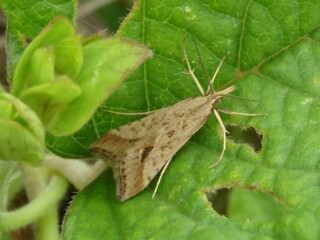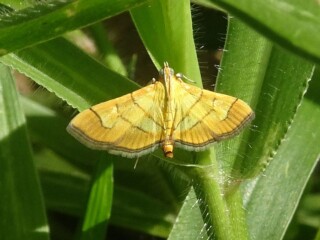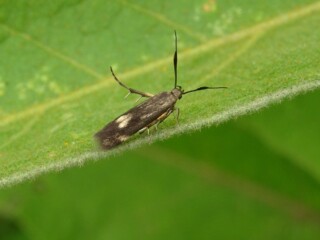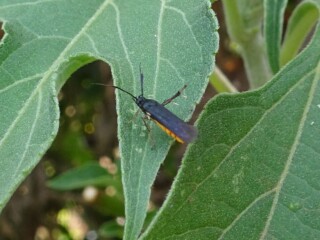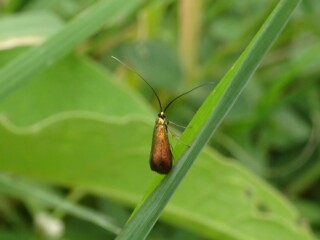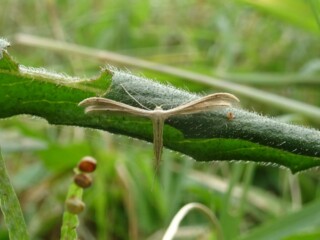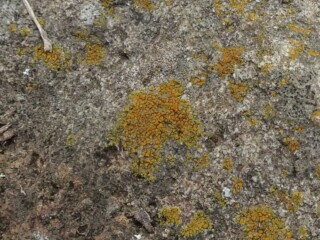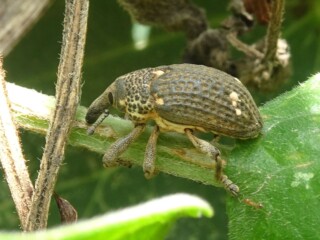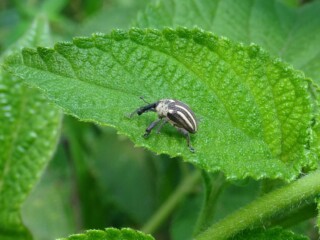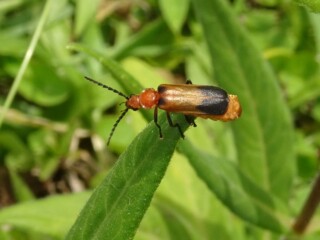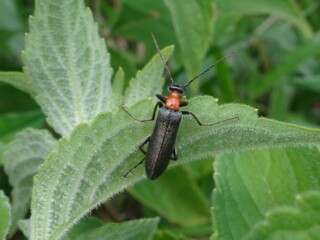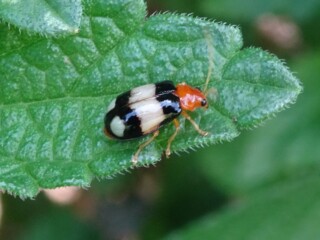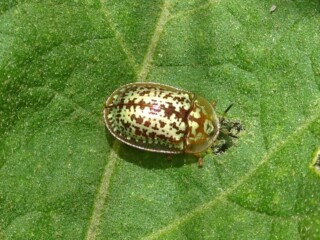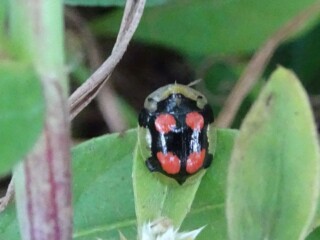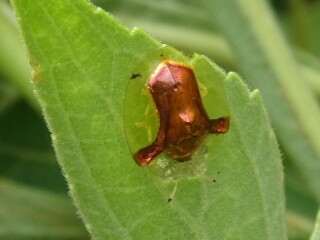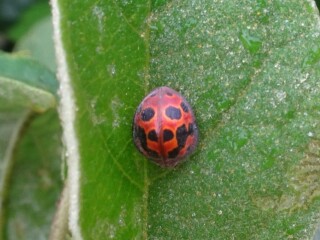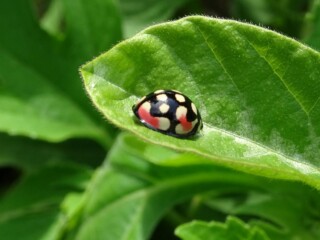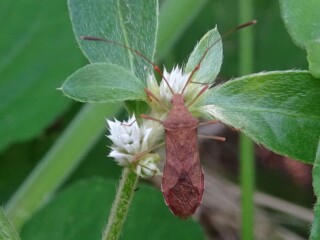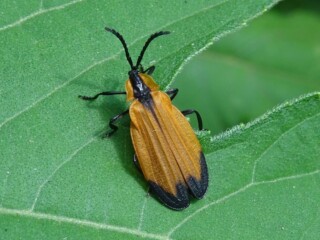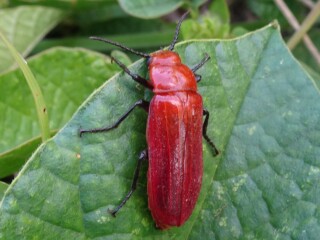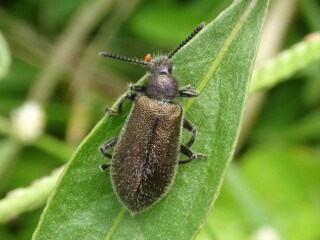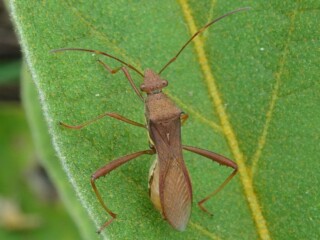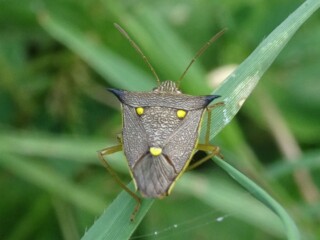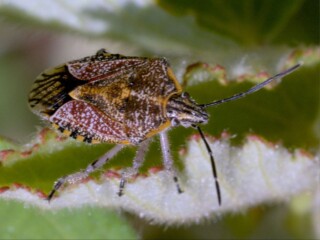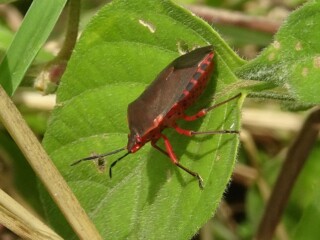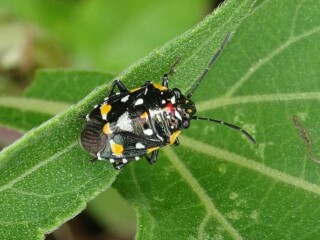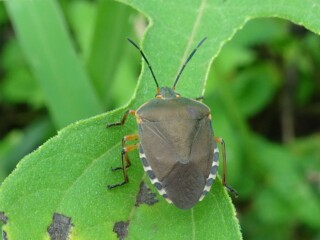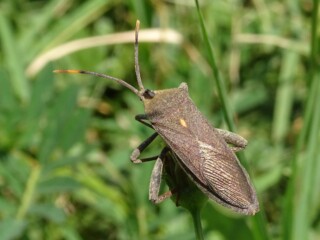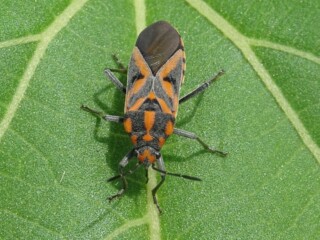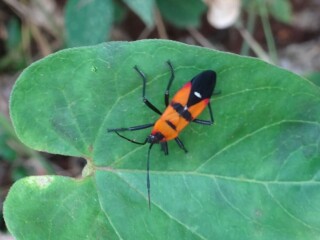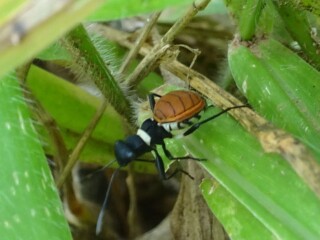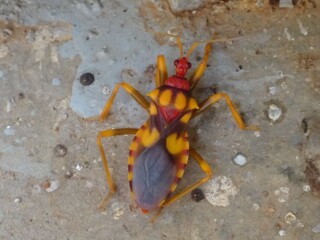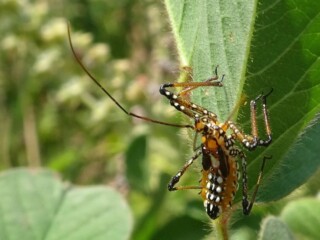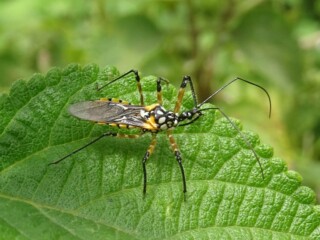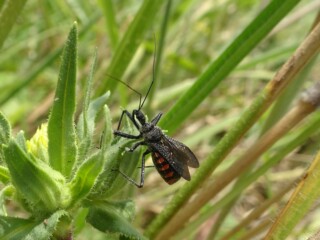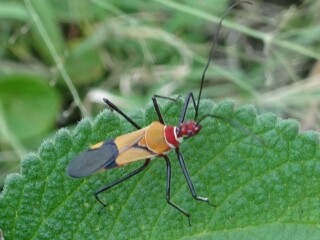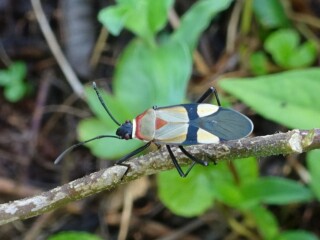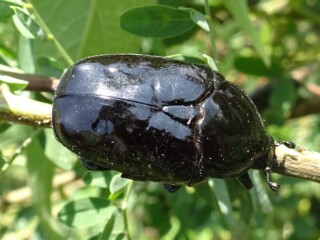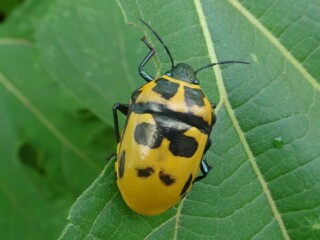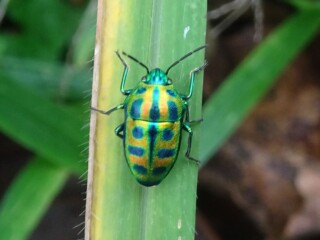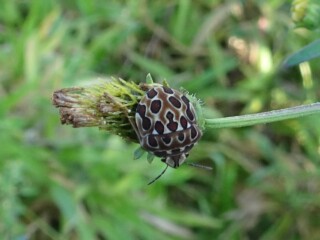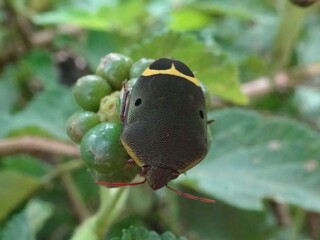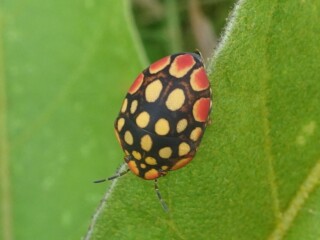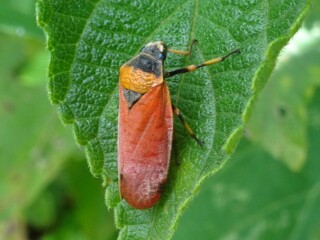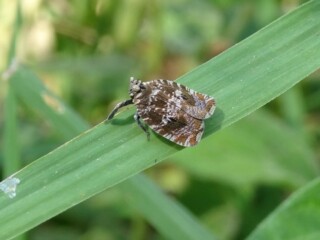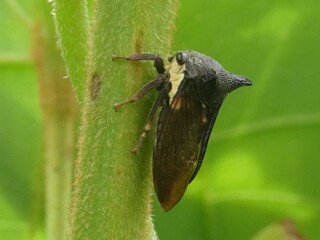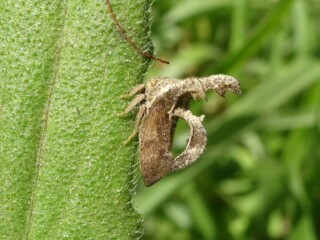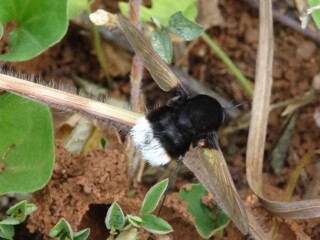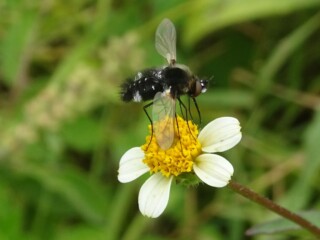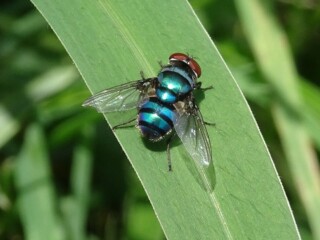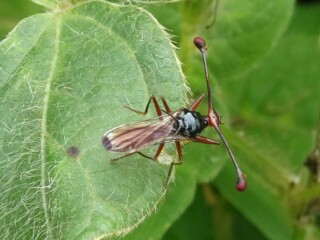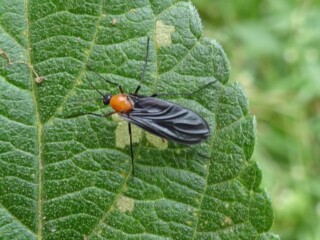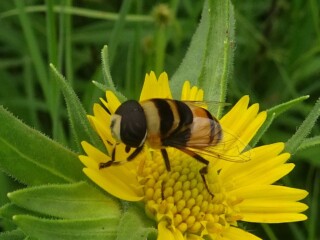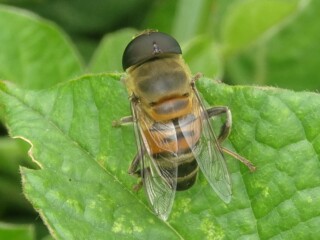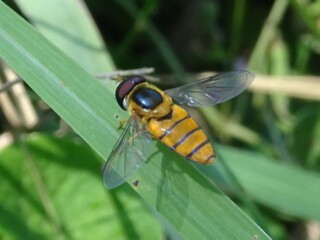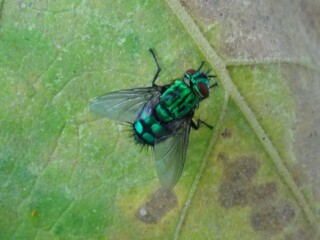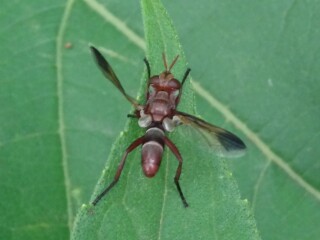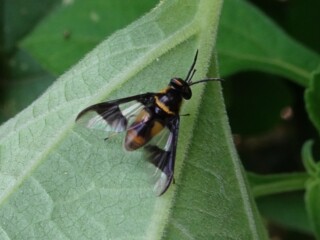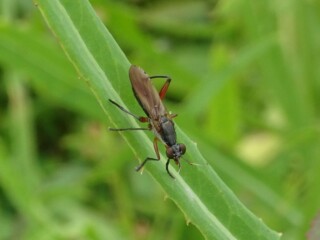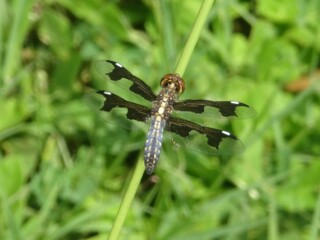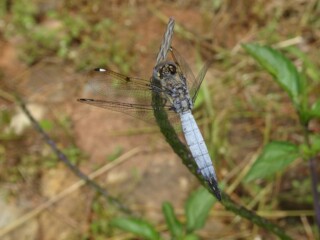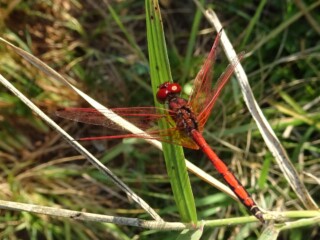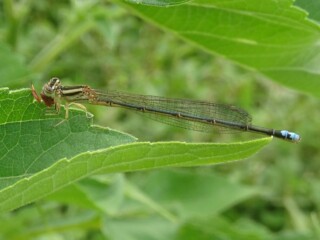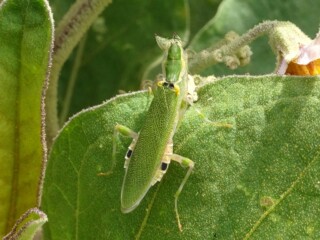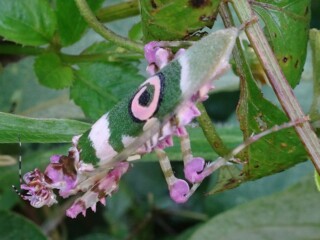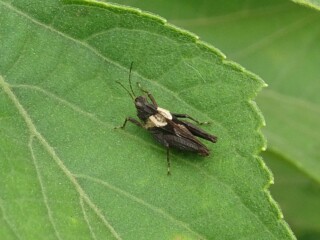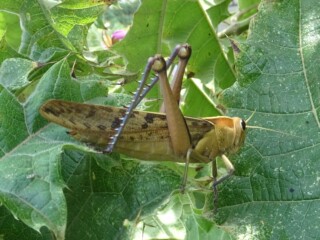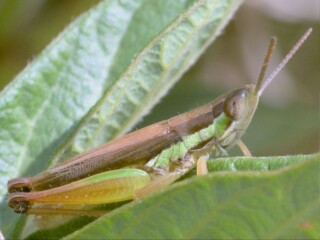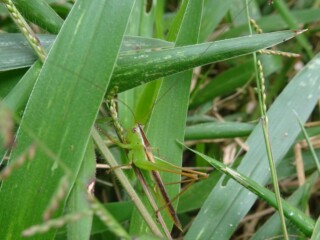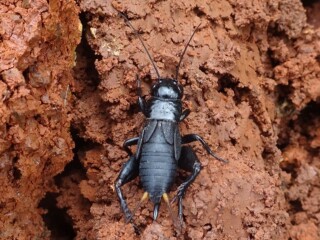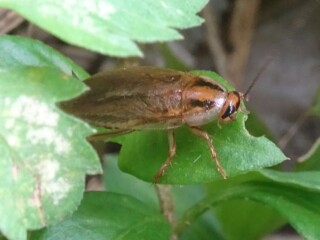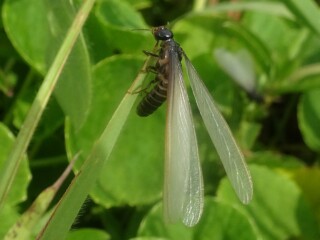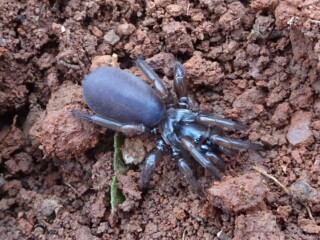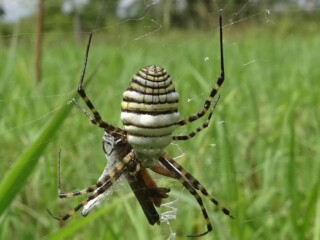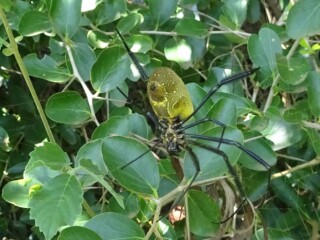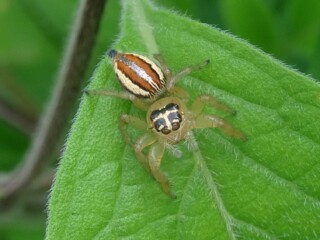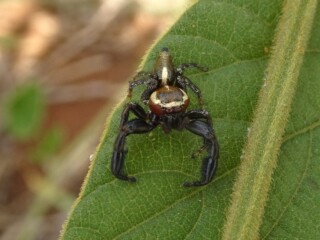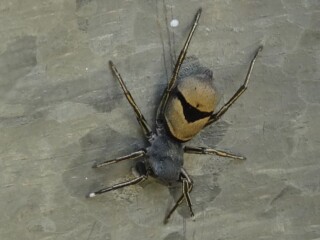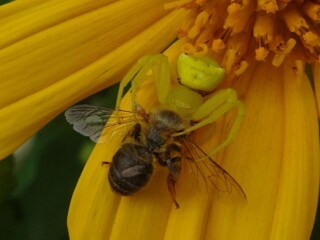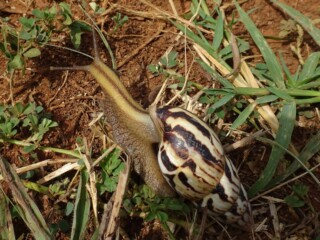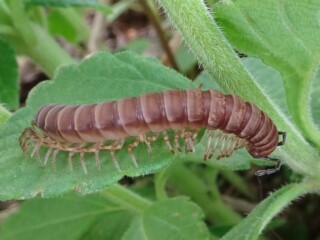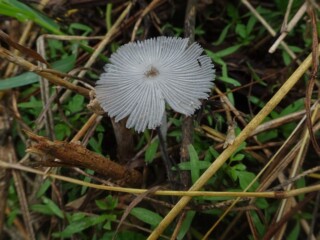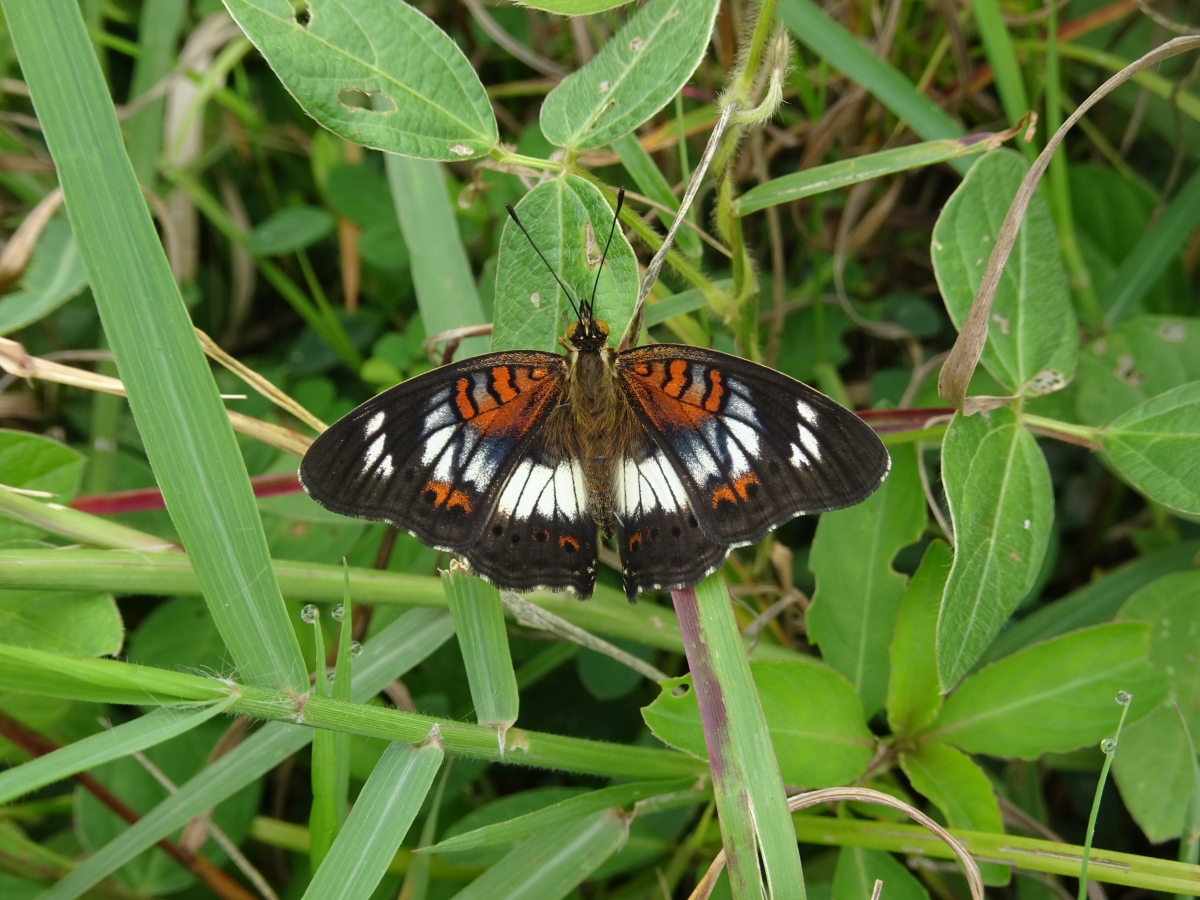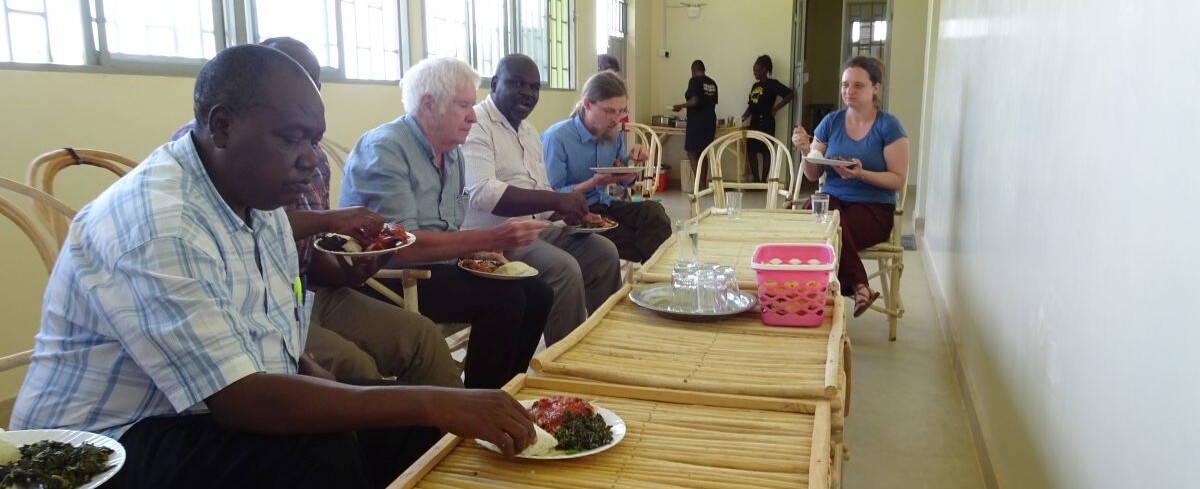ITCER e.V. and ITCER Kenya are non-profit partner organizations dedicated to advancing research, teaching, and outreach in Western Kenya and surrounding regions, through an international training centre. Learn more about our Location .
Background
Kenya’s rich biodiversity, comprising over 35,000 species of macroorganisms, along with numerous fungi and microorganisms, is crucial for the nation’s economy and well-being. However, these resources face increasing threats from unsustainable practices and climate change, leading to ecosystem degradation. ITCER is committed to addressing these challenges by fostering education, promoting sustainable resource management, and building resilience against climate change. The Kenyan government is making strides in biodiversity conservation, and ITCER aims to support these efforts through educational initiatives and community engagement.
Organizational Structure ITCER is a regional organization registered in Germany (e.V.) and Kenya as an international NGO. Both ITCER Kenya and ITCER e.V. have a board of directors composed of elected members from Kenya and other countries. A management committee, including the Chair, Secretary, and Treasurer, oversees ITCER’s progress. The associations together include a network of over 20 professionals who contribute to ITCER’s initiatives, guided by the Executive Director.
Members and Memberships ITCER Kenya and ITCER e.V. members are drawn from academic institutions such as Egerton University, Maseno University (Kenya), University of Bamenda (Cameroon), University of Bayreuth, University of Hohenheim, Helmholtz Centre for Infection Research, and Hochschule Karlsruhe (Germany). Additionally, members include professionals from organizations like BIO-Diverse, SNSB IT Center, and Stiftung Pfennigparade (Germany), enhancing ITCER’s interdisciplinary approach to research and outreach.
ITCER works closely with local universities to foster collaboration and build stronger academic partnerships.
Donors and funders include the University of Bayreuth , University of Hohenheim , University of Tübingen , Senior Expert Service (SES) , and the African-German Youth Initiative (AGYO) .
ITCER e.V. and ITCER Kenya are also partners and members of other relevant organizations.
Kenyan government support includes partnerships with the County Government of Siaya , Kenya Forest Service , KEPHIS , NEMA , and the NGO Coordination Board Office .
ITCER’s Role
ITCER provides case-based training in environmental sciences for postgraduate students, scientists, and stakeholders in Kenya and neighboring countries. The organization facilitates the implementation of environmental knowledge, promotes sustainable resource use, supports community development, and engages in sustainable agriculture and indigenous species conservation. ITCER also collaborates with local organizations, enhances capacity building through workshops and conferences, and conducts scientific research to improve production capabilities.
Facilitating environmental education and outreach programs.
Promoting conservation and sustainable resource use.
Supporting community development and sustainable agriculture.
Collaborating with related organizations and local initiatives.
Building capacity through training and research to improve local practices.
Environmental Science Research and Training
Biodiversity: Support sustainable resource management and ecosystem services through community engagement and education.
Climate Change: Collaborate with local governments and communities on regional strategies for resilience against climate impacts.
Sustainable Agriculture: Work with communities to advance and implement sustainable farming practices.
Renaturation: Support local communities and governments in their efforts to restore natural habitats and enhance biodiversity.
Community Development: Empower local communities through training, education, and support for sustainable initiatives.
Strategic Approaches
Engage in strategic partnerships and regional collaboration to support environmental and community efforts.
Develop a regional center for sharing information on environmental, climate, and biodiversity topics.
Work with grassroots groups and promote responsible practices among businesses.
Aims ITCER seeks to supplement university curricula with practical training in environmental management, aligned with regional needs and sustainable development goals.
Encourage networking among diverse actors to support sustainable development.
Strengthen connections through dialogue, training, and community initiatives.
Focus on practical research and education to support biodiversity and climate resilience.
Educational Concept and Planning ITCER offers workshops and seminars led by international experts, with future plans for lab-based training. Financial support is provided based on need.
Programme ITCER’s academic program includes:
Envisaged Teaching Modules: Planned for up to 15 students, focusing on advanced diagnostics.Seminars: One- to three-day sessions covering key environmental topics.Outreach Presentations: Planned to engage local communities starting next year.
Envisaged Training Areas Training will cover biodiversity, soil and water conservation, plant pathology, and data management.
Apply for an Event Application details will be announced soon. Please check our website for updates.
Ongoing Research Projects Research includes:
Plastiphily is linked to generic virulence traits of important human pathogenic fungi – Gkoutselis, G.M., Rohrbach, S., Harjes, J., Brachmann, A., Horn, M.A., Rambold, G. Communications Earth & Environment (2024). Read more Management and publication of scientific data on traditional mycological and lichenological knowledge in Africa – Kinge, T.R., Jefwa, J.M., Houdanon, R.D., Milenge, H.K., Abdel-Azeem, A.M., Gryzenhout, M., Triebel, D., Weibulat, T., Rambold, G. Lichenologist (2023). Read more Chemical properties of key metabolites determine the global distribution of lichens – Schweiger, A., Ullmann, M., Nürk, N.M., Triebel, D., Schobert, R., Rambold, G. Ecology Letters (2021). Read more
... more
Microplastics accumulate fungal pathogens in terrestrial ecosystems – Gkoutselis, G.M., Rohrbach, S., Harjes, J., Obst, M., Brachmann, A., Horn, M., Rambold, G. Scientific Reports (2021). Read more Sesquiterpenes from an Eastern African medicinal mushroom belonging to the genus Sanghuangporus – Cheng, T., Chepkirui, C., Decock, C., Matasyoh, J.C., Stadler, M. J. Nat. Prod. (2019). Read more Skeletocutins, Antibacterial agents from the Kenyan wood-inhabiting Basidiomycete, Skeletocutis sp. – Chepkirui, C., Cheng, T., Sum, B.W., Decock, C., Matasyoh, J.C., Praditya, D.F., Steinmann, E., Stadler, M. J. Agric. Food Chem. (2019). Read more Livestock grazing and rainfall manipulation alter the patterning of CO2 fluxes and biomass development of the herbaceous community in a humid savanna – Okach, D.O., Ondier, J.O., Kumar, A., Rambold, G., Tenhunen, J., Huwe, B., Otieno, D.O. Plant Ecology (2019). Read more
…..
Resources Visit our Resources page for access to macrobiome images, online training software, and other deliverables.
Events
Stay tuned for upcoming events and activities at ITCER. We host a variety of workshops and seminars throughout the year. Check back regularly for updates on our event calendar.
Events including important visits to site, seminars, workshops, and courses.
Facilities
Zurück GBIF Data Workshop Participants from Kenya, Benin, Cameroon and Germany — 15.10.2023 The new gate — 11.09.2023 Main Building — 25.11.2021 Main Building, Secretary Room — 20.05.2021 Main laboratory — 04.08.2022 Laboratory devices and consumables have arrived from Germany — 21.03.2023 First instructions for lab activities — 15.09.2023 Seminar with student from three universities — 12.11.2022 Seminar with students from three universities — 12.11.2022 Seminar with students from three universities — 12.11.2022 One day visit of students from the University of Tübingen (Germany) — 20.03.2023 Phytomonitoring station — 10.2021 Seminar with participants from Siaya County Covernment and colleages from Germany — 25.03.2022 GBIF Data Workshop Participants from Kenya and Germany — 27.10.2022 GBIF Data Workshop Participants from Kenya and Germany — 27.10.2022 GBIF Data Workshop Participants from Kenya, Benin, Cameroon and Germany — 15.10.2023 The new gate — 11.09.2023 Main Building — 25.11.2021 Main Building, Secretary Room — 20.05.2021 Main laboratory — 04.08.2022 Laboratory devices and consumables have arrived from Germany — 21.03.2023 First instructions for lab activities — 15.09.2023 Seminar with student from three universities — 12.11.2022 Seminar with students from three universities — 12.11.2022 Seminar with students from three universities — 12.11.2022 One day visit of students from the University of Tübingen (Germany) — 20.03.2023 Phytomonitoring station — 10.2021 Seminar with participants from Siaya County Covernment and colleages from Germany — 25.03.2022 GBIF Data Workshop Participants from Kenya and Germany — 27.10.2022 GBIF Data Workshop Participants from Kenya and Germany — 27.10.2022 GBIF Data Workshop Participants from Kenya, Benin, Cameroon and Germany — 15.10.2023 Weiter
Gallery images © ITCER e.V. , 2023
Hostels nearby
Bookings can be made via ITCER.
Roadmap The ITCER facilities are developing with time. While the plot of land was purchased in 2016 and construction of the first building (hosting lab and seminar room) started in June 2018 (both financed via private financial means), the final finishes to the building were achieved end-2022. This allows us to now begin developing and arranging for the training and research programme in collaboration and universities in Western Kenya and responsible governmental bodies. In order to run the courses (the first seminars have taken place in 2nd half of 2022), first donations are sought for further equipping the laboratory and IT (see Donation ).
Location
LOCATION OF TRAINING CENTRE
ITCER is located in Ng’iya, Siaya County, Western Kenya, 60 km from Kisumu at Lake Victoria (see Site map).
The site is characterized by developed public infrastructure and proximity to diverse natural ecosystems such as savanna, rainforest, and wetlands, which serve as training grounds for fieldwork.
Biodiversity on Site
Zurück Acherontia atropos (Sphingidae, Sphinginae, Acherontiini) [larva] and Lantana camara (Verbenaceae, Lantanoideae, Lantaneae) — 02.05.2023Acanthus polystachus (Acanthaceae, Acanthoideae, Acantheae) — 21.10.2022Asystasia gangetica (Acanthaceae, Acanthoideae, Justicieae) — 13.04.2023Tithonia diversifolia (Asteraceae, Asteroideae, Heliantheae) — 04.07.2022Apis mellifera scutellata (Apidae, Apinae, Apini) [⚲] and Guizotia scabra (Asteraceae, Asteroideae, Millerieae) — 09.03.2022cf. Halictidae, Halictinae, Halictini sp. and Crassocephalum vitellinum (Asteraceae, Asteroideae, Senecioneae) — 31.07.2023 Emilia coccinea (Asteraceae, Asteroideae, Senecioneae) — 26.09.2023Crotalaria retusa (Fabaceae, Faboideae, Crotalarieae) — 20.06.2022Vigna luteola (Fabaceae, Faboideae, Phaseoleae) — 31.07.2023Ocimum gratissimum (Lamiaceae, Nepetoideae, Ocimeae) — 23.05.2023Leonotis nepetifolia (Lamiaceae, Lamioideae, Leucadeae) — 27.10.2022Urena lobata (Malvaceae, Malvoideae, Hibisceae) — 31.10.2022Astripomoea grantii (Convolvulaceae, Convolvuloideae, Ipomoeeae) — 02.06.2023Hycleus tinctus (Meloidae, Meloinae, Mylabrini) and Hewittia malabarica (Convolvulaceae, Convolvuloideae, Merremieae) — 23.08.2022cf. Melittidae sp. and Solanum cf. campylacanthum (Solanaceae, Solanoideae, Solaneae) — 05.04.2023 Commelina africana (Commelinaceae, Commelinoideae, Commelineae) — 26.09.2023Euphorbia heterophylla (Euphorbiaceae, Euphorbioideae, Euphorbieae) — 02.05.2023Croton macrostachyus (Euphorbiaceae, Crotonoideae, Crotoneae) — 02.05.2023Striga hermontheca (Orobanchaceae, Rhinantheae, Buchnereae) — 31.05.2023Lantana camara (Verbenaceae, Lantanoideae, Lantaneae) — 21.09.2023Lophaetus occipitalis (Accipitridae, Aquilinae, Aquilini) and Markhamia lutea (Bignoniaceae, Tecomeae) — 16.09.2022Buteo augur (Accipitridae, Buteoninae, Buteonini) and wooden electricity pylon — 10.06.2023Uraeginthus bengalus (Estrildidae, Lagonostictinae) and branch stalk of planted Casuarina equisetifolia (Casuarinaceae) — 18.03.2022Spermestes cf. bicolor (Estrildidae, Lonchurinae) and Poaceae sp. — 27.02.2023Acanthocercus ugandaensis (Agamidae, Agaminae) — 19.01.2023Chamaeleo dilepis (Chamaelenidae, Chamaeleoninae, Chamaeleonini) and Markhamia lutea (Bignoniaceae, Tecomeae) — 11.09.2023Trachylepis striata (Scincidae, Mabuyinae) and Dovyalis caffra (Salicaceae, Salicoideae, Saliceae) [planted] — 23.09.2022Amietia nutti (Pyxicephalidae, Cacosterninae) and concrete surface — 31.05.2023Kassina senegalensis (Hyperoliidae, Kassininae, Kassinini) and Poaceae sp. — 24.09.2023Apis mellifera scutellata (Apidae, Apinae, Apini) [⚲] and Tithonia diversifolia (Asteraceae, Asteroideae, Heliantheae) — 18.05.2023Xylocopa cf. scioensis (Apidae, Xylocopinae, Xylocopini) and Tithonia diversifolia (Asteraceae, Asteroideae, Heliantheae) — 09.05.2023Xylocopa caffra (Apidae, Xylocopinae, Xylocopini) [♀] and Tylosema fassoglensis (Fabaceae, Cercidoideae, Cercideae) — 23.09.2023Synagris analis (Vespidae, Eumeninae, Odynerini) and Poaceae sp. — 05.04.2023Rhynchium cf. oculatum (Vespidae, Eumeninae, Odynerini) and Poaceae sp. — 05.04.2023Sceliphron spirifex (Sphecidae, Sceliphrinae, Sceliphrini) and Crotalaria cf. pallida (Fabaceae, Faboideae, Crotalarieae) — 26.02.2022Polistes badius (Vespidae, Polistinae, Polistini) and leaf litter of cf. Tithonia diversifolia (Asteraceae, Asteroideae, Heliantheae) — 23.08.2022Chrysis lincea (Chrysididae, Chrysidinae, Chrysidini) and plastered stone wall surface — 03.03.2023Formicidae sp. and Leonotis nepetifolia (Lamiaceae, Lamioideae, Leucadeae) — 28.06.2022 Papilio demodocus (Papilionidae, Papilioninae, Papilionini) and Poaceae sp. — 09.06.2023Eurema hecabe (Pieridae, Coliadinae, Euremini) and Justicia flava (Acanthaceae, Acanthoideae, Justicieae) — 17.03.2023Junonia sophia (Nymphalidae, Nymphalinae, Junonini) and cf. Alternanthera sessilis (Amaranthaceae, Gomphrenoideae, Gomphreneae) — 11.11.2022Junonia terea (Nymphalidae, Nymphalinae, Junonini) and Tithonia diversifolia (Asteraceae, Asteroideae, Heliantheae) — 02.06.2023Junonia chorimene (Nymphalidae, Nymphalinae) — 20.06.2022Junonia oenone (Nymphalidae, Nymphalinae, Junoniini) [♂] and soil surface — 20.06.2022Neptis kiriakoffi (Nymphalidae, Limenitidinae, Neptini) and Centella asiatica (Apiaceae, Mackinlayoideae, Mackinlayeae) — 18.08.2022Acraea encedon (Nymphalidae, Heliconiinae, Acraeini) — 22.06.2023Hypolimnas misippus (Nymphalidae, Nymphalinae, Kallimini) [♂] and Guizotia scabra (Asteraceae, Asteroideae, Millerieae) — 09.05.2023Hypolimnas misippus (Nymphalidae, Nymphalinae, Kallimini) [♀] — 23.11.2022Ypthima cf. doleta (Nymphalidae, Satyrinae, Satyrini) and Poaceae sp. — 20.07.2022cf. Chilades pandava (Lycaenidae, Polyommatinae, Polyommatini) — 23.08.2022 Zizeeria knysna (Lycaenidae, Polyommatinae, Polyommatini) [♂] and Tylosema fassoglensis (Fabaceae, Cercidoideae, Cercideae) — 29.09.2022Zizeeria knysna (Lycaenidae, Polyommatinae, Polyommatini) [♂] and Poaceae sp. — 23.11.2022Leptotes pirithous (Lycaenidae, Polyommatinae, Polyommatini) [♀, oviposition] and Vigna luteola (Fabaceae, Faboideae, Phaseoleae) — 13.07.2022Eretis lugens (Hesperiidae, Tagiadinae, Celaenorrhinini) and Alternanthera sessilis (Amaranthaceae, Gomphrenoideae, Gomphreneae) — 27.07.2022Parosmodes morantii (Hesperiidae, Hesperiinae, Erionotini) — 20.03.2023Cyligramma latona (Erebidae, Erebinae, Erebini) — 25.05.2023Mocis mayeri (Erebidae, Erebinae, Euclidiini) and Poaceae sp. — 09.06.2023Mocis conveniens (Erebidae, Erebinae, Euclidiini) and Guizotia scabra (Asteraceae, Asteroideae, Millerieae) — 25.06.2022Trigonodes hyppasia (Erebidae, Erebinae, Euclidiini) and Centella asiatica (Apiaceae, Mackinlayoideae, Mackinlayeae) — 31.10.2022Rhanidophora cinctigutta (Erebidae, Erebinae, Calpinae, Calpini) — 22.05.2023cf. Rhanidophora cinctigutta (Erebidae, Erebinae, Calpinae, Calpini) [larva] — 31.05.2023 Rhipidarctia crameri (Erebidae, Arctiinae, Arctiini) [♂,♀] and Tithonia diversifolia (Asteraceae, Asteroideae, Heliantheae) — 11.09.2023Amata schellhorni (Erebidae, Arctiinae, Syntomini) and Guizotia scabra (Asteraceae, Asteroideae, Millerieae) — 01.07.2023Ceryx fulvescens (Erebidae, Arctiinae, Syntomini) [♂,♀] — 31.10.2022Hypena semilutea (Erebidae, Hypeninae, Hypenini) and Poaceae sp. — 18.08.2022Gesonia sp. (Erebinae, Boletobiinae, Phytometrini) and Poaceae sp. — 21.07.2022Ozarba domina (Noctuidae, Eustrotiinae, Nolini) 18.05.2023Zebronia phenice (Crambidae, Spilomelinae, Margaroniini) — 28.03.2023Diasemia monostigma (Crambidae, Spilomelinae, Nomophilini) — 17.10.2022Orphanostigma haemorrhoidalis (Crambidae, Spilomelinae, Spilomelini) and Poaceae sp. — 12.10.2022Eretmocera sp. (Scythrididae, Scythridinae, Scythridini) and Solanum cf. campylacanthum (Solanaceae, Solanoideae, Solaneae) — 25.06.2022Eretmocera sp. (Scythrididae, Scythridinae, Scythridini) and Tithonia diversifolia (Asteraceae, Asteroideae, Heliantheae) — 08.03.2023Adela sp. (Adelidae, Adelinae, Adelidi) and Poaceae sp. — 25.06.2022Aciptilia sp. (Pterophoridae, Pterophorinae, Pterophorini) — 27.07.2022Acherontia atropos (Sphingidae, Sphinginae, Acherontiini) [larva] and Lantana camara (Verbenaceae, Lantanoideae, Lantaneae) — 02.05.2023Acanthus polystachus (Acanthaceae, Acanthoideae, Acantheae) — 21.10.2022Asystasia gangetica (Acanthaceae, Acanthoideae, Justicieae) — 13.04.2023Tithonia diversifolia (Asteraceae, Asteroideae, Heliantheae) — 04.07.2022Apis mellifera scutellata (Apidae, Apinae, Apini) [⚲] and Guizotia scabra (Asteraceae, Asteroideae, Millerieae) — 09.03.2022cf. Halictidae, Halictinae, Halictini sp. and Crassocephalum vitellinum (Asteraceae, Asteroideae, Senecioneae) — 31.07.2023 Emilia coccinea (Asteraceae, Asteroideae, Senecioneae) — 26.09.2023Crotalaria retusa (Fabaceae, Faboideae, Crotalarieae) — 20.06.2022Vigna luteola (Fabaceae, Faboideae, Phaseoleae) — 31.07.2023Ocimum gratissimum (Lamiaceae, Nepetoideae, Ocimeae) — 23.05.2023Leonotis nepetifolia (Lamiaceae, Lamioideae, Leucadeae) — 27.10.2022Urena lobata (Malvaceae, Malvoideae, Hibisceae) — 31.10.2022Astripomoea grantii (Convolvulaceae, Convolvuloideae, Ipomoeeae) — 02.06.2023Hycleus tinctus (Meloidae, Meloinae, Mylabrini) and Hewittia malabarica (Convolvulaceae, Convolvuloideae, Merremieae) — 23.08.2022cf. Melittidae sp. and Solanum cf. campylacanthum (Solanaceae, Solanoideae, Solaneae) — 05.04.2023 Commelina africana (Commelinaceae, Commelinoideae, Commelineae) — 26.09.2023Euphorbia heterophylla (Euphorbiaceae, Euphorbioideae, Euphorbieae) — 02.05.2023Croton macrostachyus (Euphorbiaceae, Crotonoideae, Crotoneae) — 02.05.2023Striga hermontheca (Orobanchaceae, Rhinantheae, Buchnereae) — 31.05.2023Lantana camara (Verbenaceae, Lantanoideae, Lantaneae) — 21.09.2023Lophaetus occipitalis (Accipitridae, Aquilinae, Aquilini) and Markhamia lutea (Bignoniaceae, Tecomeae) — 16.09.2022Buteo augur (Accipitridae, Buteoninae, Buteonini) and wooden electricity pylon — 10.06.2023Uraeginthus bengalus (Estrildidae, Lagonostictinae) and branch stalk of planted Casuarina equisetifolia (Casuarinaceae) — 18.03.2022Spermestes cf. bicolor (Estrildidae, Lonchurinae) and Poaceae sp. — 27.02.2023Acanthocercus ugandaensis (Agamidae, Agaminae) — 19.01.2023Chamaeleo dilepis (Chamaelenidae, Chamaeleoninae, Chamaeleonini) and Markhamia lutea (Bignoniaceae, Tecomeae) — 11.09.2023Trachylepis striata (Scincidae, Mabuyinae) and Dovyalis caffra (Salicaceae, Salicoideae, Saliceae) [planted] — 23.09.2022Amietia nutti (Pyxicephalidae, Cacosterninae) and concrete surface — 31.05.2023Kassina senegalensis (Hyperoliidae, Kassininae, Kassinini) and Poaceae sp. — 24.09.2023Apis mellifera scutellata (Apidae, Apinae, Apini) [⚲] and Tithonia diversifolia (Asteraceae, Asteroideae, Heliantheae) — 18.05.2023Xylocopa cf. scioensis (Apidae, Xylocopinae, Xylocopini) and Tithonia diversifolia (Asteraceae, Asteroideae, Heliantheae) — 09.05.2023Xylocopa caffra (Apidae, Xylocopinae, Xylocopini) [♀] and Tylosema fassoglensis (Fabaceae, Cercidoideae, Cercideae) — 23.09.2023Synagris analis (Vespidae, Eumeninae, Odynerini) and Poaceae sp. — 05.04.2023Rhynchium cf. oculatum (Vespidae, Eumeninae, Odynerini) and Poaceae sp. — 05.04.2023Sceliphron spirifex (Sphecidae, Sceliphrinae, Sceliphrini) and Crotalaria cf. pallida (Fabaceae, Faboideae, Crotalarieae) — 26.02.2022Polistes badius (Vespidae, Polistinae, Polistini) and leaf litter of cf. Tithonia diversifolia (Asteraceae, Asteroideae, Heliantheae) — 23.08.2022Chrysis lincea (Chrysididae, Chrysidinae, Chrysidini) and plastered stone wall surface — 03.03.2023Formicidae sp. and Leonotis nepetifolia (Lamiaceae, Lamioideae, Leucadeae) — 28.06.2022 Papilio demodocus (Papilionidae, Papilioninae, Papilionini) and Poaceae sp. — 09.06.2023Eurema hecabe (Pieridae, Coliadinae, Euremini) and Justicia flava (Acanthaceae, Acanthoideae, Justicieae) — 17.03.2023Junonia sophia (Nymphalidae, Nymphalinae, Junonini) and cf. Alternanthera sessilis (Amaranthaceae, Gomphrenoideae, Gomphreneae) — 11.11.2022Junonia terea (Nymphalidae, Nymphalinae, Junonini) and Tithonia diversifolia (Asteraceae, Asteroideae, Heliantheae) — 02.06.2023Junonia chorimene (Nymphalidae, Nymphalinae) — 20.06.2022Junonia oenone (Nymphalidae, Nymphalinae, Junoniini) [♂] and soil surface — 20.06.2022Neptis kiriakoffi (Nymphalidae, Limenitidinae, Neptini) and Centella asiatica (Apiaceae, Mackinlayoideae, Mackinlayeae) — 18.08.2022Acraea encedon (Nymphalidae, Heliconiinae, Acraeini) — 22.06.2023Hypolimnas misippus (Nymphalidae, Nymphalinae, Kallimini) [♂] and Guizotia scabra (Asteraceae, Asteroideae, Millerieae) — 09.05.2023Hypolimnas misippus (Nymphalidae, Nymphalinae, Kallimini) [♀] — 23.11.2022Ypthima cf. doleta (Nymphalidae, Satyrinae, Satyrini) and Poaceae sp. — 20.07.2022cf. Chilades pandava (Lycaenidae, Polyommatinae, Polyommatini) — 23.08.2022 Zizeeria knysna (Lycaenidae, Polyommatinae, Polyommatini) [♂] and Tylosema fassoglensis (Fabaceae, Cercidoideae, Cercideae) — 29.09.2022Zizeeria knysna (Lycaenidae, Polyommatinae, Polyommatini) [♂] and Poaceae sp. — 23.11.2022Leptotes pirithous (Lycaenidae, Polyommatinae, Polyommatini) [♀, oviposition] and Vigna luteola (Fabaceae, Faboideae, Phaseoleae) — 13.07.2022Eretis lugens (Hesperiidae, Tagiadinae, Celaenorrhinini) and Alternanthera sessilis (Amaranthaceae, Gomphrenoideae, Gomphreneae) — 27.07.2022Parosmodes morantii (Hesperiidae, Hesperiinae, Erionotini) — 20.03.2023Cyligramma latona (Erebidae, Erebinae, Erebini) — 25.05.2023Mocis mayeri (Erebidae, Erebinae, Euclidiini) and Poaceae sp. — 09.06.2023Mocis conveniens (Erebidae, Erebinae, Euclidiini) and Guizotia scabra (Asteraceae, Asteroideae, Millerieae) — 25.06.2022Trigonodes hyppasia (Erebidae, Erebinae, Euclidiini) and Centella asiatica (Apiaceae, Mackinlayoideae, Mackinlayeae) — 31.10.2022Rhanidophora cinctigutta (Erebidae, Erebinae, Calpinae, Calpini) — 22.05.2023cf. Rhanidophora cinctigutta (Erebidae, Erebinae, Calpinae, Calpini) [larva] — 31.05.2023 Rhipidarctia crameri (Erebidae, Arctiinae, Arctiini) [♂,♀] and Tithonia diversifolia (Asteraceae, Asteroideae, Heliantheae) — 11.09.2023Amata schellhorni (Erebidae, Arctiinae, Syntomini) and Guizotia scabra (Asteraceae, Asteroideae, Millerieae) — 01.07.2023Ceryx fulvescens (Erebidae, Arctiinae, Syntomini) [♂,♀] — 31.10.2022Hypena semilutea (Erebidae, Hypeninae, Hypenini) and Poaceae sp. — 18.08.2022Gesonia sp. (Erebinae, Boletobiinae, Phytometrini) and Poaceae sp. — 21.07.2022Ozarba domina (Noctuidae, Eustrotiinae, Nolini) 18.05.2023Zebronia phenice (Crambidae, Spilomelinae, Margaroniini) — 28.03.2023Diasemia monostigma (Crambidae, Spilomelinae, Nomophilini) — 17.10.2022Orphanostigma haemorrhoidalis (Crambidae, Spilomelinae, Spilomelini) and Poaceae sp. — 12.10.2022Eretmocera sp. (Scythrididae, Scythridinae, Scythridini) and Solanum cf. campylacanthum (Solanaceae, Solanoideae, Solaneae) — 25.06.2022Eretmocera sp. (Scythrididae, Scythridinae, Scythridini) and Tithonia diversifolia (Asteraceae, Asteroideae, Heliantheae) — 08.03.2023Adela sp. (Adelidae, Adelinae, Adelidi) and Poaceae sp. — 25.06.2022Aciptilia sp. (Pterophoridae, Pterophorinae, Pterophorini) — 27.07.2022Acherontia atropos (Sphingidae, Sphinginae, Acherontiini) [larva] and Lantana camara (Verbenaceae, Lantanoideae, Lantaneae) — 02.05.2023Weiter 1 2 3 4 5 6 7 8 9 10 11 12 13 14 15 16 17 18 19 20 21 22 23 24 25 26 27 28 29 30 31 32 33 34 35 36 37 38 39 40 41 42 43 44 45 46 47 48 49 50 51 52 53 54 55 56 57 58 59 60 61 62 63 64 65 66 67 68 69 70 71 72 73 74
Zurück Caloplaca sp. (Teloschistaceae) and Trebouxia sp. (Trebouxiaeae) and rock surface — 28.03.2023cf. Anthonomus sp. (Curculionidae, Curculioninae, Anthonomini) — 03.10.2022 Alcidodes leucogrammus (Curculionidae, Molytinae, Mecysolobini) and Lantana camara (Verbenaceae, Lantanoideae, Lantaneae) — 29.08.2022Rhagonycha fulva (Cantharidae, Cantharinae, Cantharini) and cf. Guizotia scabra (Asteraceae, Asteroideae, Millerieae) — 30.08.2022Cantharis cf. nigricans (Cantharidae, Cantharinae, Cantharini) and cf. Hoslundia opposita (Lamiaceae, Nepetoideae, Ocimeae) — 22.11.2022Monolepta elegans (Chrysomelidae, Galerucinae, Luperini) and Lantana camara (Verbenaceae, Lantanoideae, Lantaneae) — 31.08.2022Conchyloctenia hybrida (Chrysomelidae, Cassidinae) — 28.04.2023cf. Aspidimorpha areata (Chrysomelidae, Cassidinae, Aspidimorphini) and Alternanthera sessilis (Amaranthaceae, Gomphrenoideae, Gomphreneae) — 24.10.2022 Aspidimorpha sp. (Chrysomelidae, Cassidinae, Aspidimorphini) — 16.10.2022Epilachna sp. (Coccinellidae, Epilachninae, Epilachnini) and cf. Solanum cf. campylacanthum (Solanaceae, Solanoideae, Solaneae) — 25.06.2023Cheilomenes sulphurea (Coccinellidae, Coccinellinae, Coccinellini) — 31.08.2022Hydara tenuicornis (Coreidae, Coreinae, Hydarini) and Alternanthera sessilis (Amaranthaceae, Gomphrenoideae, Gomphreneae) — 29.08.2022Lycus cf. trabeatus (Lycidae, Lycinae, Lycini) and Tithonia diversifolia (Asteraceae, Asteroideae, Heliantheae) — 28.06.2022Synhoria cf. cephalotes (Meloidae, Nemognathinae, Horiini) — 04.11.2022Lagria villosa (Tenebrionidae, Lagriinae, Lagriini) and Laboulbeniomycetes sp. and cf. Alternanthera sessilis (Amaranthaceae, Gomphrenoideae, Gomphreneae) — 06.09.2022Riptortus dentipes (Alydidae, Alidinae, Alydini) and Solanum cf. campylacanthum (Solanaceae, Solanoideae, Solaneae) — 01.11.2022Aspavia armigera (Pentatomidae, Pentatominae, Eysarcorini) and Poaceae sp. — 20.07.2022Agonoscelis versicoloratus (Pentatomidae, Pentatominae, Agonoscelidini) — 02.03.2022Caura rufiventris (Pentatomidae, Pentatominae, Cappaeini) — 04.08.2022cf. Stenozygum coloratum (Pentatomidae, Pentatominae, Strachiini) — 30.08.2023 cf. Dolycoris sp. (Pentatomidae, Pentatominae, Carpocorini) and Tithonia diversifolia (Asteraceae, Asteroideae, Heliantheae) — 11.11.2022 Anoplocnemis curvipes (Coreidae, Coreinae, Mictini) and stalk — 27.07.2022Spilostethus furcula (Lygaeidae, Lygaeinae, Lygaeini) and Tithonia diversifolia (Asteraceae, Asteroideae, Heliantheae) — 02.03.2022Oncopeltus famelicus (Lygaeidae, Lygaeinae, Lygaeini) — 17.08.2023Myrmoplasta vittiventris (Pyrrhocoridae) and Poaceae sp. — 17.03.2023Acanthaspis cf. quinquespinosa (Reduviidae, Acanthaspinae, Acanthaspini) and plastered wall surface — 20.08.2023Cosmolestes annulipes (Reduviidae, Harpactorinae, Harpactorini) [nymph] and Neonotonia wightii (Fabaceae, Faboideae, Phaseoleae) — 01.08.2023Cosmolestes pictus (Reduviidae, Harpactorinae, Harpactorini) and Lantana camara (Verbenaceae, Lantanoideae, Lantaneae) — 01.09.2022Rhynocoris tristis (Reduviidae, Harpactorinae, Harpactorini) and cf. Guizotia scabra (Asteraceae, Asteroideae, Millerieae) — 23.03.2022Dysdercus cf. superstitius (Pyrrhocoridae, Pyrrhocorinae) and Lantana trifolia (Verbenaceae, Lantanoideae, Lantaneae) — 26.07.2022Dysdercus voelkeri (Pyrrhocoridae, Pyrrhocorinae, Pyrrhocorini) and Poaceae sp. — 20.03.2023Diplognatha gagates (Scarabaeidae, Cetoniinae, Diplognathini) — 04.08.2022Cryptacrus comes (Scutelleridae, Scutellerinae, Scutellerini) and Tithonia diversifolia (Asteraceae, Asteroideae, Heliantheae) — 29.08.2023Calidea dregii (Scutelleridae, Scutellerinae, Scutellerini) and Poaceae sp. — 18.08.2022Sphaerocoris testudogrisea (Scutelleridae, Scutellerinae, Scutellerini) and Bidens pilosa (Asteraceae, Asteroideae, Coreopsideae) — 17.07.2023Solenosthedium liligerum (Scutelleridae, Elvisurinae, Elvisurini) and Lantana camara (Verbenaceae, Lantanoideae, Lantaneae) — 19.09.2023Steganocerus multipunctatus (Scutelleridae, Tectocorinae, Sphaerocorini) and Solanum cf. campylacanthum (Solanaceae, Solanoideae, Solaneae) — 06.12.2022Locris cf. areata (Cercopidae, Cercopinae, Locrisini) and cf. Lantana camara (Verbenaceae, Lantanoideae, Lantaneae) — 28.03.2023Elasmoscelis stali (Lophopidae, Lophopinae, Elasmoscelini) and Poaceae sp. — 26.07.2022Centrotus cf. cornutus (Membracidae, Centrotinae, Centrotini) — 03.10.2022cf. Cladonota sp. (Membracidae, Membracinae, Hypsoprorini) — 31.01.2023 Bombomyia discoidea (Bombyliidae, Bombyliinae, Bombyliini) and dead stalk — 19.07.2022 Bombylella ornata (Bombyliidae, Bombyliinae, Bombyliini) and Bidens pilosa (Asteraceae, Asteroideae, Coreopsideae) — 17.10.2022Chrysomya marginalis (Calliphoridae, Chrysomyinae, Chrysomyini) and Poaceae sp. — 29.08.2022Diopsis mayae (Diopsidae, Diopsinae, Diopsini) and cf. Alternanthera sessilis (Amaranthaceae, Gomphrenoideae, Gomphreneae) — 27.07.2022Plecia ruficollis (Bibionidae, Pleciinae, Pleciini) and cf. Lantana camara (Verbenaceae, Lantanoideae, Lantaneae) — 21.07.2022Phytomia natalensis (Syrphidae, Eristalinae, Eristalini) and Guizotia scabra (Asteraceae, Asteroideae, Millerieae) — 25.04.2023Eristalis cf. tenax (Syrphidae, Eristalinae, Eristalini) — 28.11.2022Asarkina ericetorum (Syrphidae, Syrphinae, Syrphini) and Poaceae sp. — 22.07.2022Phorinia sp. (Tachinidae, Exoristinae, Exoristini) — 09.09.2023cf. Cylindromyia sp. (Tachinidae, Phasiinae, Cylindromyiini) and Tithonia diversifolia (Asteraceae, Asteroideae, Heliantheae) — 03.10.2022 cf. Chrysops longipennis (Tabanidae, Chrysopsinae, Chrysopsini) and Tithonia diversifolia (Asteraceae, Asteroideae, Heliantheae) — 03.03.2022 Sepedon cf. nasuta (Sciomyzidae, Sciomyzinae, Tetanocerini) and cf. Guizotia scabra (Asteraceae, Asteroideae, Millerieae) — 25.06.2022Palpopleura cf. portia (Libellulidae, Palpopleurinae, Palpopleurini) [♂] and stalk — 16.10.2022Orthetrum sp. (Libellulidae, Libellulinae, Libellulini) [♂] and stalk — 21.10.2022Trithemis arteriosa (Libellulidae, Trithemistinae, Trithemistini) and cf. Poaceae — 17.07.2023Pseudagrion hageni (Coenagrionidae, Pseudagrioninae, Pseudagrionini) [♂] and Tithonia diversifolia (Asteraceae, Asteroideae, Heliantheae) — 04.10.2022Pseudoharpax virescens (Galinthiadidae, Galinthiadinae, Galinthiadini) [♀] and Solanum incanum (Solanaceae, Solanoideae, Solaneae) — 11.03.2023Pseudocreobotra wahlbergi (Hymenopodidae, Hymenopodinae, Hymenopodini) — 25.06.2023cf. Paratettix sp. (Tetrigidae, Tetriginae, Tetrigini) and Tithonia diversifolia (Asteraceae, Asteroideae, Heliantheae) — 17.10.2022 cf. Locusta migratoria (Acrididae, Oedipodinae, Locustini) — 31.08.2023 Spathosternum cf. pygmaeum (Acrididae, Spathosternini, Spathosternini) — 01.03.2022Conocephalus maculatus (Tettigoniidae, Conocephalinae, Conocephalini) and Poaceae sp. — 21.07.2022Gryllus bimaculatus (Gryllidae, Gryllinae, Gryllini) [nymph] and soil — 06.04.2023cf. Blattella germanica (Ectobiidae, Blattellinae, Blattellini) — 03.10.2022 cf. Odontotermes sp. (Termitidae, Macrotermitinae, Odontotermitini) [♀] and Poaceae sp. — 12.11.2022 cf. Cteniza sp. (Ctenizidae, Ctenizinae, Ctenizini) and soil surface — 06.09.2023 Argiope trifasciata (Araneidae, Argiopinae, Argiopini) — 28.03.2023Nephila sp. ( (Nephilidae, Nephilinae, Nephilini) and Dovyalis caffra (Salicaceae, Salicoideae, Saliceae) [planted] — 23.09.2023Thyene inflata (Salticidae, Salticinae, Plexippini) [♀] — 13.12.2022Thyene bucculenta (Salticidae, Salticinae, Plexippini) [♂] — 23.02.2023Mexcala elegans (Salticidae, Salticinae, Chrysillini) [♂] and stone wall surface — 04.08.2022Thomisus cf. daradioides (Thomisidae, Thomisinae, Thomisini) and Apis mellifera scutellata (Apidae, Apinae, Apini) [⚲] and cf. Desmometopa sp. (Milichiidae, Madizinae, Madizini) and Tithonia diversifolia (Asteraceae, Asteroideae, Heliantheae) — 07.08.2023Achatina sp. (Achatinidae, Achatininae, Achatinini) and soil surface — 14.03.2022cf. Pleuroloma sp. (Xystodesmidae, Rhysodesminae, Rhysodesmini) — 01.04.2023 Parasola sp. (Psathyrellaceae) and soil surface — 27.06.2023Caloplaca sp. (Teloschistaceae) and Trebouxia sp. (Trebouxiaeae) and rock surface — 28.03.2023cf. Anthonomus sp. (Curculionidae, Curculioninae, Anthonomini) — 03.10.2022 Alcidodes leucogrammus (Curculionidae, Molytinae, Mecysolobini) and Lantana camara (Verbenaceae, Lantanoideae, Lantaneae) — 29.08.2022Rhagonycha fulva (Cantharidae, Cantharinae, Cantharini) and cf. Guizotia scabra (Asteraceae, Asteroideae, Millerieae) — 30.08.2022Cantharis cf. nigricans (Cantharidae, Cantharinae, Cantharini) and cf. Hoslundia opposita (Lamiaceae, Nepetoideae, Ocimeae) — 22.11.2022Monolepta elegans (Chrysomelidae, Galerucinae, Luperini) and Lantana camara (Verbenaceae, Lantanoideae, Lantaneae) — 31.08.2022Conchyloctenia hybrida (Chrysomelidae, Cassidinae) — 28.04.2023cf. Aspidimorpha areata (Chrysomelidae, Cassidinae, Aspidimorphini) and Alternanthera sessilis (Amaranthaceae, Gomphrenoideae, Gomphreneae) — 24.10.2022 Aspidimorpha sp. (Chrysomelidae, Cassidinae, Aspidimorphini) — 16.10.2022Epilachna sp. (Coccinellidae, Epilachninae, Epilachnini) and cf. Solanum cf. campylacanthum (Solanaceae, Solanoideae, Solaneae) — 25.06.2023Cheilomenes sulphurea (Coccinellidae, Coccinellinae, Coccinellini) — 31.08.2022Hydara tenuicornis (Coreidae, Coreinae, Hydarini) and Alternanthera sessilis (Amaranthaceae, Gomphrenoideae, Gomphreneae) — 29.08.2022Lycus cf. trabeatus (Lycidae, Lycinae, Lycini) and Tithonia diversifolia (Asteraceae, Asteroideae, Heliantheae) — 28.06.2022Synhoria cf. cephalotes (Meloidae, Nemognathinae, Horiini) — 04.11.2022Lagria villosa (Tenebrionidae, Lagriinae, Lagriini) and Laboulbeniomycetes sp. and cf. Alternanthera sessilis (Amaranthaceae, Gomphrenoideae, Gomphreneae) — 06.09.2022Riptortus dentipes (Alydidae, Alidinae, Alydini) and Solanum cf. campylacanthum (Solanaceae, Solanoideae, Solaneae) — 01.11.2022Aspavia armigera (Pentatomidae, Pentatominae, Eysarcorini) and Poaceae sp. — 20.07.2022Agonoscelis versicoloratus (Pentatomidae, Pentatominae, Agonoscelidini) — 02.03.2022Caura rufiventris (Pentatomidae, Pentatominae, Cappaeini) — 04.08.2022cf. Stenozygum coloratum (Pentatomidae, Pentatominae, Strachiini) — 30.08.2023 cf. Dolycoris sp. (Pentatomidae, Pentatominae, Carpocorini) and Tithonia diversifolia (Asteraceae, Asteroideae, Heliantheae) — 11.11.2022 Anoplocnemis curvipes (Coreidae, Coreinae, Mictini) and stalk — 27.07.2022Spilostethus furcula (Lygaeidae, Lygaeinae, Lygaeini) and Tithonia diversifolia (Asteraceae, Asteroideae, Heliantheae) — 02.03.2022Oncopeltus famelicus (Lygaeidae, Lygaeinae, Lygaeini) — 17.08.2023Myrmoplasta vittiventris (Pyrrhocoridae) and Poaceae sp. — 17.03.2023Acanthaspis cf. quinquespinosa (Reduviidae, Acanthaspinae, Acanthaspini) and plastered wall surface — 20.08.2023Cosmolestes annulipes (Reduviidae, Harpactorinae, Harpactorini) [nymph] and Neonotonia wightii (Fabaceae, Faboideae, Phaseoleae) — 01.08.2023Cosmolestes pictus (Reduviidae, Harpactorinae, Harpactorini) and Lantana camara (Verbenaceae, Lantanoideae, Lantaneae) — 01.09.2022Rhynocoris tristis (Reduviidae, Harpactorinae, Harpactorini) and cf. Guizotia scabra (Asteraceae, Asteroideae, Millerieae) — 23.03.2022Dysdercus cf. superstitius (Pyrrhocoridae, Pyrrhocorinae) and Lantana trifolia (Verbenaceae, Lantanoideae, Lantaneae) — 26.07.2022Dysdercus voelkeri (Pyrrhocoridae, Pyrrhocorinae, Pyrrhocorini) and Poaceae sp. — 20.03.2023Diplognatha gagates (Scarabaeidae, Cetoniinae, Diplognathini) — 04.08.2022Cryptacrus comes (Scutelleridae, Scutellerinae, Scutellerini) and Tithonia diversifolia (Asteraceae, Asteroideae, Heliantheae) — 29.08.2023Calidea dregii (Scutelleridae, Scutellerinae, Scutellerini) and Poaceae sp. — 18.08.2022Sphaerocoris testudogrisea (Scutelleridae, Scutellerinae, Scutellerini) and Bidens pilosa (Asteraceae, Asteroideae, Coreopsideae) — 17.07.2023Solenosthedium liligerum (Scutelleridae, Elvisurinae, Elvisurini) and Lantana camara (Verbenaceae, Lantanoideae, Lantaneae) — 19.09.2023Steganocerus multipunctatus (Scutelleridae, Tectocorinae, Sphaerocorini) and Solanum cf. campylacanthum (Solanaceae, Solanoideae, Solaneae) — 06.12.2022Locris cf. areata (Cercopidae, Cercopinae, Locrisini) and cf. Lantana camara (Verbenaceae, Lantanoideae, Lantaneae) — 28.03.2023Elasmoscelis stali (Lophopidae, Lophopinae, Elasmoscelini) and Poaceae sp. — 26.07.2022Centrotus cf. cornutus (Membracidae, Centrotinae, Centrotini) — 03.10.2022cf. Cladonota sp. (Membracidae, Membracinae, Hypsoprorini) — 31.01.2023 Bombomyia discoidea (Bombyliidae, Bombyliinae, Bombyliini) and dead stalk — 19.07.2022 Bombylella ornata (Bombyliidae, Bombyliinae, Bombyliini) and Bidens pilosa (Asteraceae, Asteroideae, Coreopsideae) — 17.10.2022Chrysomya marginalis (Calliphoridae, Chrysomyinae, Chrysomyini) and Poaceae sp. — 29.08.2022Diopsis mayae (Diopsidae, Diopsinae, Diopsini) and cf. Alternanthera sessilis (Amaranthaceae, Gomphrenoideae, Gomphreneae) — 27.07.2022Plecia ruficollis (Bibionidae, Pleciinae, Pleciini) and cf. Lantana camara (Verbenaceae, Lantanoideae, Lantaneae) — 21.07.2022Phytomia natalensis (Syrphidae, Eristalinae, Eristalini) and Guizotia scabra (Asteraceae, Asteroideae, Millerieae) — 25.04.2023Eristalis cf. tenax (Syrphidae, Eristalinae, Eristalini) — 28.11.2022Asarkina ericetorum (Syrphidae, Syrphinae, Syrphini) and Poaceae sp. — 22.07.2022Phorinia sp. (Tachinidae, Exoristinae, Exoristini) — 09.09.2023cf. Cylindromyia sp. (Tachinidae, Phasiinae, Cylindromyiini) and Tithonia diversifolia (Asteraceae, Asteroideae, Heliantheae) — 03.10.2022 cf. Chrysops longipennis (Tabanidae, Chrysopsinae, Chrysopsini) and Tithonia diversifolia (Asteraceae, Asteroideae, Heliantheae) — 03.03.2022 Sepedon cf. nasuta (Sciomyzidae, Sciomyzinae, Tetanocerini) and cf. Guizotia scabra (Asteraceae, Asteroideae, Millerieae) — 25.06.2022Palpopleura cf. portia (Libellulidae, Palpopleurinae, Palpopleurini) [♂] and stalk — 16.10.2022Orthetrum sp. (Libellulidae, Libellulinae, Libellulini) [♂] and stalk — 21.10.2022Trithemis arteriosa (Libellulidae, Trithemistinae, Trithemistini) and cf. Poaceae — 17.07.2023Pseudagrion hageni (Coenagrionidae, Pseudagrioninae, Pseudagrionini) [♂] and Tithonia diversifolia (Asteraceae, Asteroideae, Heliantheae) — 04.10.2022Pseudoharpax virescens (Galinthiadidae, Galinthiadinae, Galinthiadini) [♀] and Solanum incanum (Solanaceae, Solanoideae, Solaneae) — 11.03.2023Pseudocreobotra wahlbergi (Hymenopodidae, Hymenopodinae, Hymenopodini) — 25.06.2023cf. Paratettix sp. (Tetrigidae, Tetriginae, Tetrigini) and Tithonia diversifolia (Asteraceae, Asteroideae, Heliantheae) — 17.10.2022 cf. Locusta migratoria (Acrididae, Oedipodinae, Locustini) — 31.08.2023 Spathosternum cf. pygmaeum (Acrididae, Spathosternini, Spathosternini) — 01.03.2022Conocephalus maculatus (Tettigoniidae, Conocephalinae, Conocephalini) and Poaceae sp. — 21.07.2022Gryllus bimaculatus (Gryllidae, Gryllinae, Gryllini) [nymph] and soil — 06.04.2023cf. Blattella germanica (Ectobiidae, Blattellinae, Blattellini) — 03.10.2022 cf. Odontotermes sp. (Termitidae, Macrotermitinae, Odontotermitini) [♀] and Poaceae sp. — 12.11.2022 cf. Cteniza sp. (Ctenizidae, Ctenizinae, Ctenizini) and soil surface — 06.09.2023 Argiope trifasciata (Araneidae, Argiopinae, Argiopini) — 28.03.2023Nephila sp. ( (Nephilidae, Nephilinae, Nephilini) and Dovyalis caffra (Salicaceae, Salicoideae, Saliceae) [planted] — 23.09.2023Thyene inflata (Salticidae, Salticinae, Plexippini) [♀] — 13.12.2022Thyene bucculenta (Salticidae, Salticinae, Plexippini) [♂] — 23.02.2023Mexcala elegans (Salticidae, Salticinae, Chrysillini) [♂] and stone wall surface — 04.08.2022Thomisus cf. daradioides (Thomisidae, Thomisinae, Thomisini) and Apis mellifera scutellata (Apidae, Apinae, Apini) [⚲] and cf. Desmometopa sp. (Milichiidae, Madizinae, Madizini) and Tithonia diversifolia (Asteraceae, Asteroideae, Heliantheae) — 07.08.2023Achatina sp. (Achatinidae, Achatininae, Achatinini) and soil surface — 14.03.2022cf. Pleuroloma sp. (Xystodesmidae, Rhysodesminae, Rhysodesmini) — 01.04.2023 Parasola sp. (Psathyrellaceae) and soil surface — 27.06.2023Caloplaca sp. (Teloschistaceae) and Trebouxia sp. (Trebouxiaeae) and rock surface — 28.03.2023Weiter 1 2 3 4 5 6 7 8 9 10 11 12 13 14 15 16 17 18 19 20 21 22 23 24 25 26 27 28 29 30 31 32 33 34 35 36 37 38 39 40 41 42 43 44 45 46 47 48 49 50 51 52 53 54 55 56 57 58 59 60 61 62 63 64 65 66 67 68 69 70 71 72 73 74 75 76
Under Resources below, you will find the total inventory of images related to the site’s macrobiome.
Gallery images © ITCER e.V. , 2023
ITCER is located in Ng’iya, Siaya County, Western Kenya, 60 km from Kisumu at Lake Victoria (see Site map).
The site is characterized by developed public infrastructure and proximity to diverse natural ecosystems such as savanna, rainforest, and wetlands, which serve as training grounds for fieldwork.
